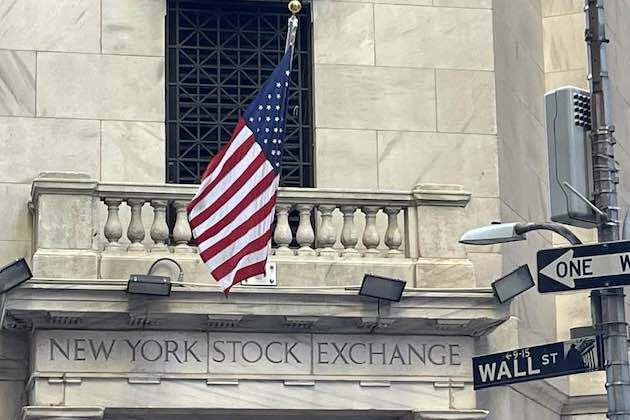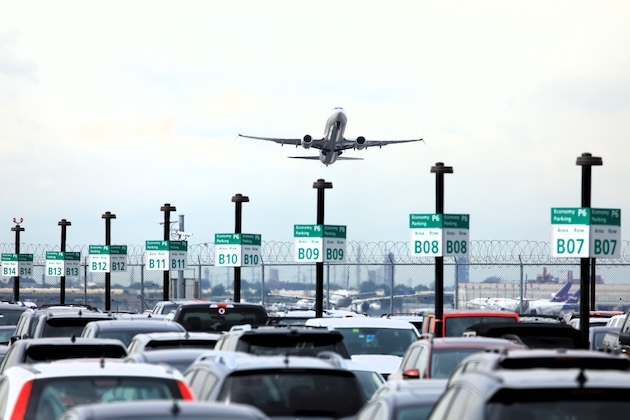US inflation slows to 4-year low as food prices fall, rents rise
16 May 2025, 16:26 GMT+10

- In April, U.S. consumer prices went up slightly. Rent costs increased, but food prices went down, which helped keep the overall rise small
- Over the past year, prices rose just 2.3 percent—the smallest increase in four years. Still, the future of inflation is uncertain because of ongoing tariffs
- The recent data from the U.S. Labor Department showed that prices didn’t rise as much as economists had expected
WASHINGTON, D.C.: In April, U.S. consumer prices went up slightly. Rent costs increased, but food prices went down, which helped keep the overall rise small. Over the past year, prices rose just 2.3 percent—the smallest increase in four years. Still, the future of inflation is uncertain because of ongoing tariffs.
The recent data from the U.S. Labor Department showed that prices didn't rise as much as economists had expected. So far, the higher import taxes introduced by President Trump haven't had a significant impact on prices, although some effects may become apparent later this year.
This report suggests that inflation was already slowing before Trump's confusing new tariff policies. Economists still believe the Federal Reserve will wait until later in the summer before making any changes to interest rates.
Although the U.S. and China agreed to a 90-day pause in their trade war over the weekend, most tariffs remain in place, including a 10 percent tax on nearly all imports and specific tariffs on certain items.
Jeffrey Roach, chief economist at LPL Financial, said that improved trade relations could help clarify the direction of inflation. But because the trade deals are temporary, it's hard for the Federal Reserve to plan. If things stay uncertain, the Fed may not change interest rates in June.
In April, the Consumer Price Index (CPI) rose by 0.2 percent, following a 0.1 percent decline in March (the first drop since May 2020). Economists had expected a 0.3 percent rise. The increase in rents made up over half of the CPI increase.
Food prices fell 0.1 percent in April after rising 0.4 percent in March. Grocery prices dropped 0.4 percent—the most significant fall since September 2020. Egg prices decreased 12.7 percent, marking the most significant drop since 1984, following a 49.3 percent surge over the past year. Prices for fruits, vegetables, cereals, and bakery items also decreased. However, prices for drinks, such as coffee and soda, rose 0.7 percent.
Gas prices decreased slightly, but consumers paid more for natural gas and electricity.
Over the last 12 months, overall prices rose by 2.3 percent, down from 2.4 percent in March. Tariffs, including new ones on Chinese imports and vehicles, have not yet significantly increased prices. Some tariffs won't begin until July. Businesses may have stocked up ahead of time, which is helping keep prices stable for now.
Conrad DeQuadros from Brean Capital said that companies have about 3.7 months' worth of goods in stock. Once those run low, tariffs might push prices up.
Trump's administration agreed to reduce tariffs on Chinese goods to 30 percent for the next 90 days. China's tariffs on U.S. goods will drop to 10 percent from 125 percent.
Despite this, Yale's Budget Lab stated that the new tariffs could still lead to a 1.7 percent rise in prices in the short term, costing the average household approximately $2,800 in lost purchasing power. People's expectations of inflation are also rising.
Investors believe the Fed might cut interest rates again in September. Last week, the Fed kept interest rates steady between 4.25 percent and 4.50 percent.
Stock markets generally rose, the U.S. dollar declined slightly, and government bond yields increased somewhat.
If we leave out food and energy (which are often unpredictable), prices rose 0.2 percent in April after a 0.1 percent increase in March. This "core inflation" was mainly driven by higher rent costs. Hotel prices dropped slightly.
Furniture prices rose 1.0 percent, and prescription drug prices increased 0.4 percent. However, prices for clothes, toys, and used cars dropped. New car prices stayed the same, though Kelley Blue Book data showed some prices more than doubled in April.
Core goods prices rose 0.1 percent after falling 0.1 percent in March. Car insurance and healthcare costs went up. However, airline ticket prices fell 2.8 percent due to a decline in travelers.
The core CPI was up 2.8 percent from a year ago, the same as in March. Economists think that the core PCE Price Index, another important measure of inflation used by the Fed, also rose 0.2 percent in April. That would keep the yearly rise at 2.6 percent.
The Fed uses the core Personal Consumption Expenditures (PCE) index to guide its inflation target of 2 percent.
"Even with the recent agreement between the Trump administration and China to reduce the most onerous import taxes, tariffs against all U.S. trading partners are much higher than they were at the beginning of 2025," said Gus Faucher, chief economist at PNC Financial. "Those higher tariffs will work their way into consumer goods prices over the next few months, pushing inflation back up."
 Share
Share
 Tweet
Tweet
 Share
Share
 Flip
Flip
 Email
Email
Watch latest videos
Subscribe and Follow
Get a daily dose of Boston Star news through our daily email, its complimentary and keeps you fully up to date with world and business news as well.
News RELEASES
Publish news of your business, community or sports group, personnel appointments, major event and more by submitting a news release to Boston Star.
More InformationBusiness
SectionUS inflation slows to 4-year low as food prices fall, rents rise
WASHINGTON, D.C.: In April, U.S. consumer prices went up slightly. Rent costs increased, but food prices went down, which helped keep...
US sees absolute decline in international visitor spending
NEW YORK - International travel spending in the United States is projected to decline by 7 percent in 2025, amounting to a US$12.5...
Mixed close for U.S. stocks Thursday, dollar mostly lower
NEW YORK, New York - U.S. stocks were mostly higher Thursday, although the Nasdaq Composite finished modestly behind. This is a market...
Puerto Rico courts manufacturers amid escalating global trade war
SAN JUAN, Puerto Rico: As the global trade war deepens, Puerto Rico is seizing the moment to lure international companies to relocate...
Eli Lilly’s Zepbound outperforms Wegovy in obesity drug study
INDIANAPOLIS, Indiana: Eli Lilly's obesity drug Zepbound led to nearly 50 percent more weight loss than Novo Nordisk's Wegovy in the...
China's passenger car sales rise for third straight month in April
SHENZHEN, China: China's passenger car sales climbed for the third consecutive month in April, increasing 14.8 percent from a year...
Massachusetts
SectionEli Lilly’s Zepbound outperforms Wegovy in obesity drug study
INDIANAPOLIS, Indiana: Eli Lilly's obesity drug Zepbound led to nearly 50 percent more weight loss than Novo Nordisk's Wegovy in the...
Trump reopens protected Cape Cod waters to fishing
WASHINGTON, D.C.: On May 9, U.S. President Donald Trump signed an order to reopen nearly 5,000 square miles of protected ocean near...
FAA acts to fix ongoing flight delays at Newark Airport
WASHINGTON, D.C.: The Federal Aviation Administration (FAA) says it is taking urgent steps to fix problems that have caused hundreds...
Assam: Prof Upasana Mahanta joins Cambridge International's advisory council as first Indian member
Guwahati (Assam) [India], May 15 (ANI): Professor Upasana Mahanta, Dean of Admissions and Outreach at O.P. Jindal Global University,...
Josh Charles to star in 'Best Medicine'
Washington [US], May 11 (ANI): Actor Josh Charles will star in 'Best Medicine', an adaptation of the long-running series 'Doc Martin'....
US: Major Companies Violate Gig Workers' Rights
(Washington, DC) - Major digital labor platforms, also known as gig companies, operating in the United States misclassify gig workers...











